 |
| The world of many young people today is an invisible book, no longer thick with ink and paper, but still full of ideas and emotions. (Source: Sforum) |
Perhaps never before has the journey of a letter moved so quickly. From the fragrant ink-scented page, it suddenly turns into light, flows through the fingertips, and resonates in the ears of the listener. That is when the young generation of Vietnam enters a silent revolution - the digital reading revolution, where knowledge no longer stays on the bookshelf, but circulates with the breath of the times.
Knowledge comes from "touches"
If one morning, you come across a young girl sitting by the window, watering the plants while listening attentively to her headphones, she might be “reading” Sapiens : A Brief History of Humankind or How Much is Youth Worth through a warm voice from an audiobook. At a small coffee shop, a student scrolls through the screen to continue the unfinished chapter from last night. Their world is an invisible book, no longer thick with ink and paper, but still full of ideas and emotions.
According to statistics from the e-book platform Waka, young Vietnamese readers (aged 18 to 24) account for more than half of digital book readers. On average, they spend more than 13 hours a week reading or listening to books - an astonishing number in an era where time is often consumed by social networks. These "mobile libraries" are changing the way people access knowledge - faster, more convenient, and almost borderless.
If we put Vietnam on the global digital reading map, we are no longer a latecomer. While markets like the US or Korea have long developed ebooks and audiobooks, Vietnam has shown a remarkable leap.
The average reading time of Vietnamese users on major platforms is not inferior to that of India or Thailand - countries famous for their strong reading culture.
That shows that the young generation of Vietnam is not only “reading to know”, but is “reading to grow up” in an open space, where technology does not stifle emotions, but becomes a bridge bringing knowledge closer to life.
After years of social distancing, the world of reading has also changed. While people everywhere have retreated behind their doors, books have stepped onto the screen and found a new form, more fragile but more durable than ever.
According to the International Publishers Association, global digital book sales will surpass $20 billion by 2024, accounting for nearly a quarter of the entire industry. The US, China, and South Korea lead the race, while Europe cleverly balances print and digital to retain the breath of paper. Many platforms such as Kindle or Storytel even use artificial intelligence to “read” users’ moods and suggest pages that touch the right emotions.
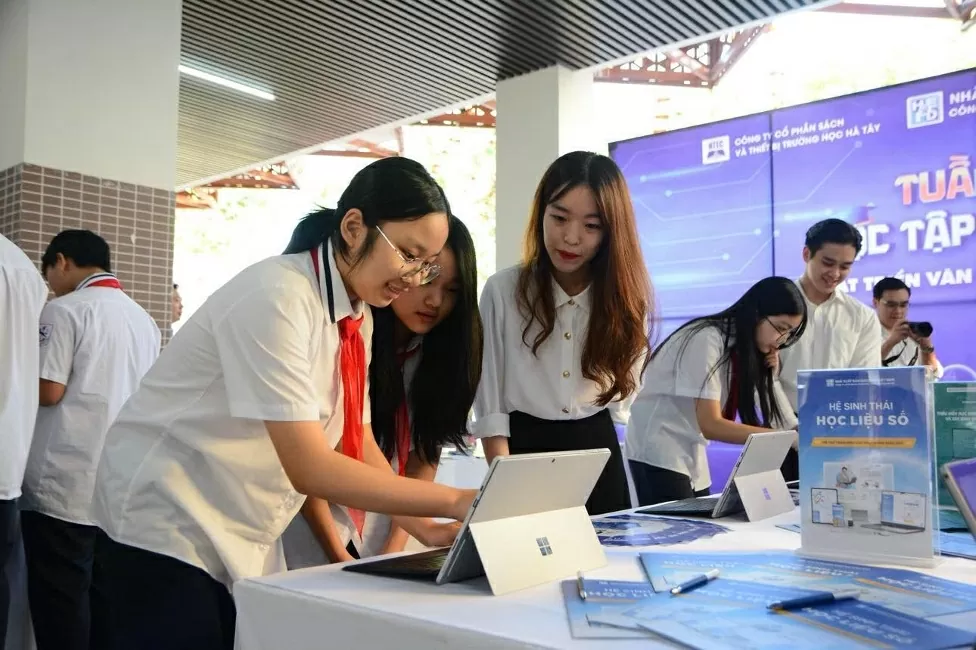 |
| Students experience the digital learning materials ecosystem. Illustrative photo. (Source: SGD/Thanhnien) |
There are still hidden corners…
However, not everything is rosy.
Reading on a screen makes many people “skim” faster, but “think” slower. Some people read hundreds of pages a week but can’t remember a single main idea. When words are no longer turned but simply swiped, sometimes the silence that is the soul of reading is stolen.
Besides, the problem of piracy of ebooks and illegal sharing of audiobooks is still a “scratch” on the beautiful picture. The copyright story, which seems to be a technical matter, is actually a part of reading ethics. If not protected, writers, readers and the entire intellectual culture will be harmed.
But on the bright side, technology is opening the door to a creative economy that revolves around digital books. Professional voiceovers turn pages into audio dramas; young startups use AI to recommend books, creating personalized reading experiences; small publishers can publish ebooks with just a few clicks. Each book, when “digitized”, has a new life, softer, more flexible and capable of touching more hearts.
From an environmental perspective, digital books also help reduce the burden of printing and transportation, saving thousands of tons of paper each year. If operated on green energy, this could be a truly green step in the journey of sustainable development.
Multi-sensory journey
In the past, people met at book cafes, flipped through pages, and shared their feelings. Now, the reading community has moved into the digital space – where everyone can share their thoughts, suggestions, and even read together even though they are thousands of kilometers apart.
Some people worry that this will take away the warmth of conversations over a cup of coffee. But who knows, it might be that online comments and groups reading together on screen are creating a new kind of “bookstore”, without walls, but full of connection.
International experts predict that in just a few years, reading will no longer be limited to the written word. Readers will be able to choose their favorite voice, listen to background music that suits their mood, and view images or videos in the same book.
AI will act as a companion – knowing what you are interested in, suggesting the most suitable book for today.
In Vietnam, the first experiments have appeared. Some domestic reading applications are combining audiobooks, interactive children's books and smart family bookshelves. It can be said that reading culture is "reviving" in a new form, both technological and humane.
 |  |
| On average, young people spend more than 13 hours a week reading or listening to books. (Photo: Nguyen Hong) | From the page to the screen, from the sound of the book turning to the voice reading through the headphones – the journey of knowledge never stops. (Photo: Nguyen Hong) |
Knowledge is a lamp, but the way of holding the lamp has changed.
From the page to the screen, from the sound of a book turning to the voice reading through headphones, the journey of knowledge is only moving forward, it has never stopped.
Young Vietnamese people today, through their own reading, are continuing to write the story of reading culture in the language of the times – faster, more open and also more sophisticated.
Because after all, whether reading with eyes or ears, whether the light comes from a desk lamp or from a phone screen, the purpose is still the same: to understand more about the world and more deeply about yourself.
Amidst the noise and chaos of today’s data network, books – whether printed or digital – are still persistently whispering their own words of knowledge. As long as there is still someone opening a page to read, as long as there is still a soul that is moved by the words, the journey of books will never end – it will just continue, on a new paper called “the digital age”.
And perhaps, amid the flow of National Digital Transformation Day October 10, when the country is crossing new thresholds of knowledge, the book – whether in hand or on screen – is still a soft thread connecting people to the cultural roots and light of the future.
Source: https://baoquocte.vn/khi-van-hoa-doc-khoac-ao-so-330413.html












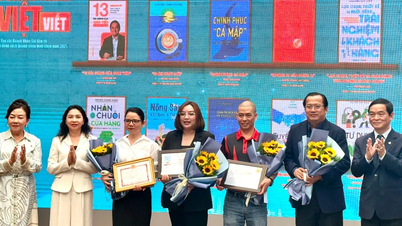

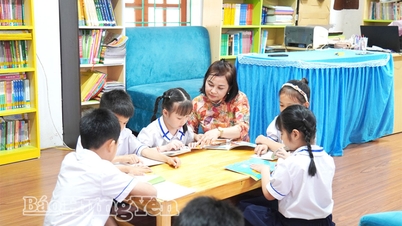

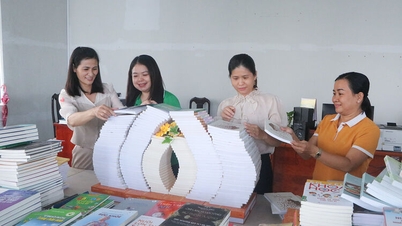

















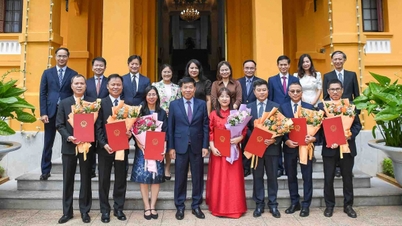

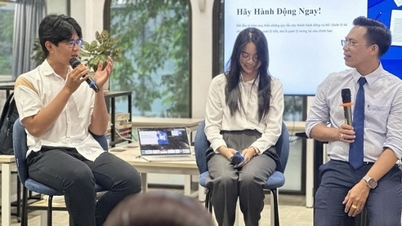













































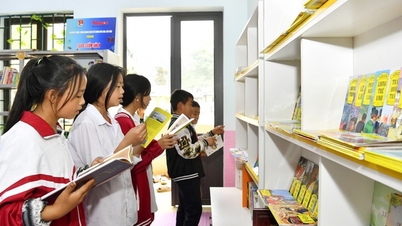



























Comment (0)